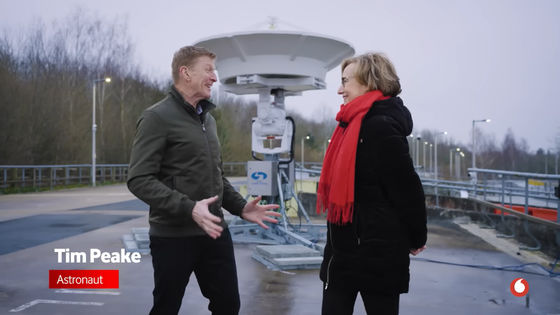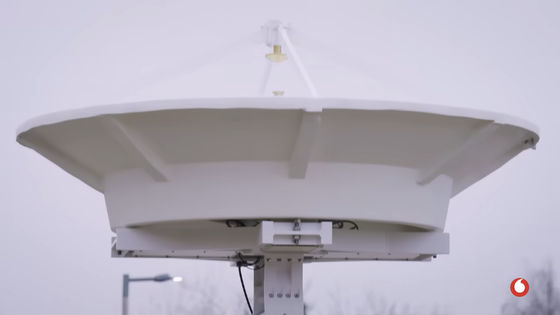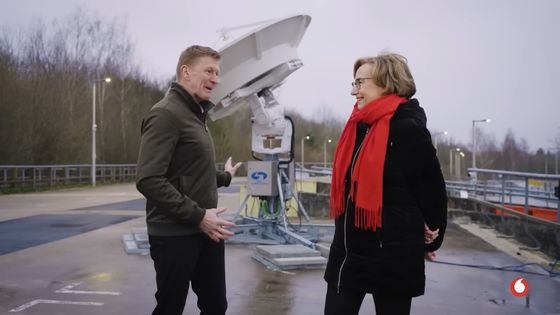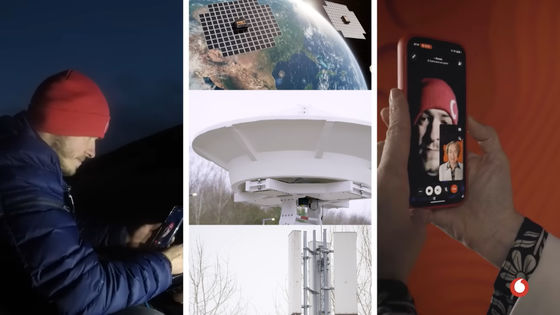Vodafone unveils world's first 'satellite video calling' test, connecting a satellite directly to a smartphone for calls in areas where mobile phone signals cannot reach

Making a historic direct-to-device satellite video call from a standard smartphone - YouTube
Vodafone makes world's first space video call from an area of no coverage using a standard mobile phone and commercial satellites built to offer a full mobile broadband experience
https://www.vodafone.com/news/technology/vodafone-makes-historic-satellite-video-call-from-a-smartphone
Direct-to-smartphone satellite service: everything you need to know
https://www.vodafone.co.uk/newscentre/smart-living/everything-you-need-to-know-about/direct-to-smartphone-satellite-service-everything-you-need-to-know/
In a movie released by Vodafone on January 30, 2025, Vodafone Group CEO Margherita Della Valle celebrates the realization of the world's first space-based video call with Tim Peake , the first British astronaut of the European Space Agency (ESA) .

Vodafone's satellite-based communication system connects smartphones to satellites orbiting about 500 to 700 km above the ground, enabling calls and social media posts. The following antennas are used to connect the satellite network to the terrestrial network.

Speaking from his experience aboard the space station, Peake said, 'In a very busy place, being able to stay connected with your family, even through a video call once a week, is invaluable. I really understand the value of being able to communicate with friends and family when you're in a remote or very isolated area.'

In the movie, Rowan Chesmer, a member of the Vodafone Group's Future Technology Research Department, makes a video call with Valle via satellite from the countryside of

Although the satellite phone system itself already exists, dedicated satellite phones are large, heavy, and expensive. Therefore, they are only used by people in special situations, such as long-distance voyages, mountain rescue teams, and relief workers in disaster areas. On the other hand, Vodafone's system does not require a dedicated antenna, Internet, or a specific terminal, but allows communication via satellite using everyday smartphones. In addition, it seems that the satellite network and terrestrial network can be switched automatically.
When it comes to satellite communications, many people probably imagine GPS, which provides location data for map apps and navigation systems. However, GPS uses Medium Earth Orbit (MEO) satellites, which are the highest of all satellites orbiting the Earth, at about 20,000 km above the Earth's surface, so it can only provide slow mobile data connections with significant latency. On the other hand, the ' AST SpaceMobile ' satellites used by Vodafone for video calls are Low Earth Orbit (LEO) satellites, located about 500 km above the Earth's surface. This means that they can provide mobile data connections at acceptable speeds, and can be equipped with Internet communication equipment without having to worry about radiation protection like MEO satellites.
'At Vodafone, our work is to connect everyone, wherever they are. Our leading European 5G network will be complemented by cutting-edge satellite technology. Vodafone will offer our users the best network, connecting people who have never had access to mobile communications before. This will help close the digital divide, supporting people across Europe to stay in touch with family, friends and work, as well as ensuring reliable connections in rural areas in emergencies,' Valle said.
Vodafone plans to conduct further tests in spring 2025, with a goal of gradually commercializing its satellite broadband services from late 2025 through 2026.
Related Posts:
in Mobile, Web Service, Posted by log1e_dh







